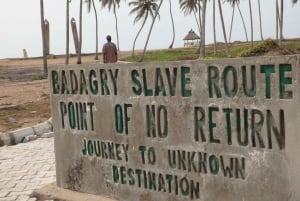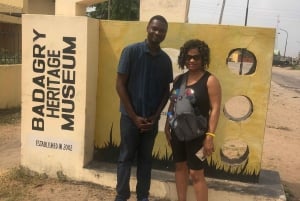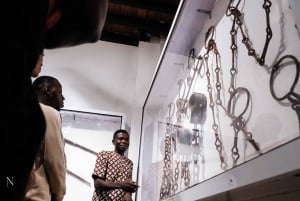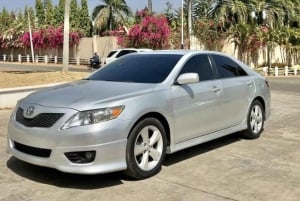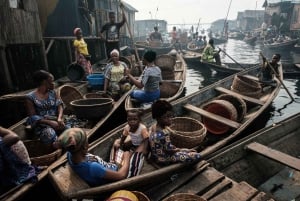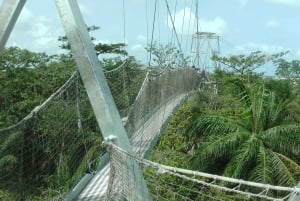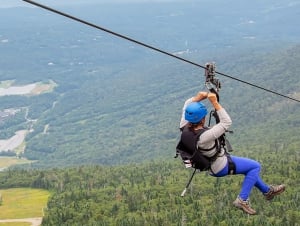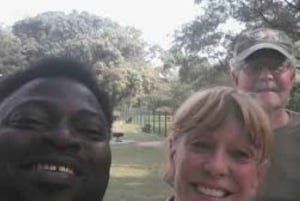Nigerian Language and Slang
The official language in Nigeria is English. Nigeria is blessed with a diverse community of ethnic groups that each have their own dialects, however, the major local languages in Nigeria are Yoruba, Igbo and Hausa, all spoken in given parts of the country.
History
Yoruba is spoken in South Western Nigeria, by a collection of people who are united in a common belief that the spiritual city of Ile-ife is their place of origin and that the Alaafin of Oyo is their spiritual leader. You will hear a lot of Igbo in the South Eastern part of the country, a region they call home. Hausa too is majorly spoken in the north (North East, North Central and North West), which has been the case since the time of Lord Lugard. In far South Nigeria, you will hear a bit of Igbo but 99% of the languages spoken are minorities like Efik, Edo, Esan, Ibibio, Ukwuani, Itsekiri, Ijaw, Urhobo, Isoko, Kalabari... the list is endless.
Basic Greetings
English|Yoruba**
Good morning|Ekuojumo**
Goodnight|Odaaro**
How are you?|Se daadaa ni?
Thank you|Ese/Ose**
English| Igbo**
Good morning|Igbolachi**
Goodnight|Kachifo**
How are you?|kedu ka idi?**
Thank you|Dalu**
English|Hausa**
Good morning|Ina kwana**
Goodnight|Said a safe**
How are you?|Kana Lafiya?**
Thank you|Nagode**
Getting around town
English|Yoruba**
I need a cab|Mo fe taxi**
Call me a cab|Pe taxi fun mi**
Is it far?|Se o jinna ni?**
Driver, you're going too fast|Driver, ere yin ti poju gan **
English|Igbo**
I need a cab|Achorom ugbo ala**
Call me a cab|Kporom ugbo ala**
Is it far?|O tere anya?**
Driver, you're going too fast|Driver, e na gba oke oso**
English|Hausa**
I need a cab|Ina son motar haya**
Call me a cab|Kira mun motar haya**
Is it far?|Yana da nisa?**
Driver, you're going too fast|Dreba, kana gudu sosai**
Shopping
English|Yoruba**
How is the market?|Bawo loja**
What are you selling?|Ki le n ta**
How much is it?|Elo ni?**
What is your final price?|Elo ni jale?**
I want to buy rice|Mo fe ra iresi**
English|Igbo**
How is the market?|Kedu maka ahai?**
What are you selling?|Gini ka i n'ere**
How much is it?|Ego ole ka obu?**
What is your final price?|Gini bu ezigbo onu ya?**
I want to buy rice|Achomi gote osikapa**
English|Hausa**
How is the market?|Ya ya kasua**
What are you selling?|Me ka ke sayarwa?**
How much is it?|Nawa ne?**
What is your final price?|Nawa ne gaskiya?**
I want to buy rice|Zan sayi rice**
Numbers
|Yoruba**
1|Okan**
2|Meji**
3|Meta**
4|Merin**
5|Marun**
6|Mefa**
7|Meje**
8|Mejo**
9|Mesan**
10|Mewa**
|Igbo**
1|Otu**
2|Abou**
3|Ato**
4|Ano**
5|Ise**
6|Isii**
7|Asaa**
8|Asato**
9|Iteghete/itolu**
10|Iri**
|Hausa**
1|Daya**
2|Biyu**
3|Uku**
4|Hudu**
5|Biyar**
6|Shida**
7|Bakwai**
8|Takwas**
9|Tara**
10|Goma**
Days of The Week
English|Yoruba**
Useful words
Slang
Pidgin or broken English is a mixture of English and Nigerian words used casually in conversations. Some English words here lose their original meanings so there can be confusion. Pidgin is one way to feel a sense of belonging with the locals. It can also get you a good discount while shopping at a market simply because you talk like one of us.
Here’s a few to get you started in grasping local slang to ease your communication.
Abi? - frequently used slang, meaning ‘isn't it?’
Wahala - trouble; ‘no wahala’ means no trouble or no worries
How Now? - a common greeting meaning 'How are things?'
How Body? - means 'How are you?'
Wetin: - means 'what'. As in: 'Wetin you dey talk?' = 'What did you say?'
Oga - this means a big man or boss
Okada - a motorbike commonly used as a taxi
Oyinbo - 'white person': you will hear this everywhere. This originally meant 'white man' or 'white woman', but has slipped into Pidgin to mean something along the lines of 'foreigner'. There is no insult intended in its usage as it is just a common way of referring to foreigners.
Pikin - a small child
Yansh - your backside, your butt, your derriere
Dash - commonly used to mean a bribe but can also be used to describe a tip or a gift.
Drop - means to get off a bus or taxi, but if you want a taxi to yourself (with no other passengers) you want a drop taxi.
Go-slow - traffic jam
Moto - any kind of vehicle, but usually used to refer to a car or taxi
Pure water - half-litre plastic bags of (not always good) drinking water sold everywhere
Small chops - snack
Sorry-o - expression of sympathy
Suya - barbecued meat, often served on sticks


